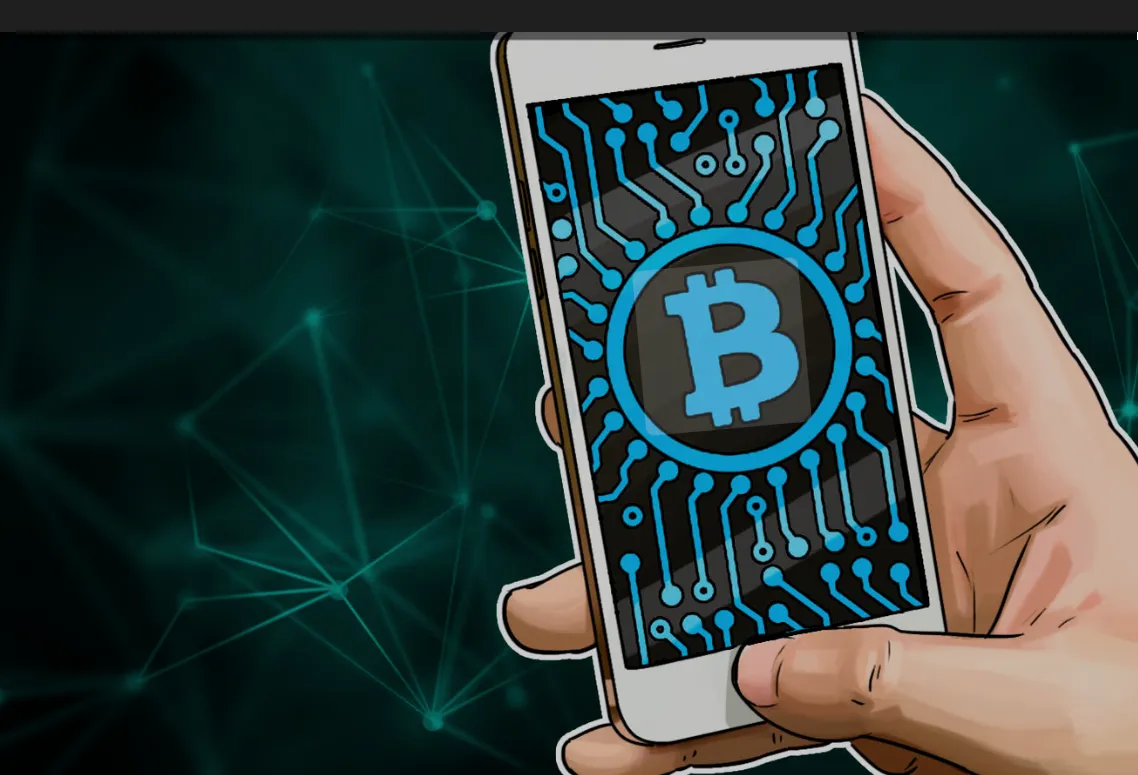My Rant:
What specific technological "wonders" or ideas related to blockchain on mobile phones were dismissed or failed to achieve widespread adoption as explored in the article?
What were the primary practical limitations that led to these ideas not reaching their full potential, and how might these limitations be overcome with continued pursuit?
How can we re-evaluate past "failures" like the HTC Exodus to understand if their underlying visionary potential could still come to pass with future advancements?

Keyword searches:
- "HTC Exodus Bitcoin node limitations"
- "mobile full node feasibility challenges"
- "future of blockchain on smartphones"
- "decentralized mobile computing potential"
- "why did HTC Exodus fail"
- "unrealized potential of blockchain phones"
- "disruptive tech dismissed too early"
There's a curious pattern in human progress, isn't there?
A truly revolutionary idea, a wonder of science, drops into our laps—a fleeting glimpse of what could be—and yet, we often greet it not with fervent pursuit, but with a collective shrug, a polite dismissal. We cite limitations, practicalities, the cumbersome present, and then let the audacious vision fade into the archives of "interesting, but not quite."
But what if we had pushed harder? What if, instead of consigning these nascent wonders to the realm of "failed experiments," we had relentlessly chipped away at their perceived flaws, fueled by the conviction that their initial struggles were merely the birth pangs of a world-changing paradigm? The story of the HTC Exodus phone, attempting to run a full Bitcoin node on a cellular device, is a poignant example of such a dismissed marvel.
Introduction: A Glimmer of True Decentralization in Our Pockets
In the nascent days of blockchain, HTC dared to dream beyond crypto wallets and dApp browsers. With the HTC Exodus 1 (2018) and its bolder successor, the HTC Exodus 1s (October 2019), they didn't just aim to make crypto accessible; they sought to put true decentralization and self-sovereignty into the palm of every user's hand by proposing a full Bitcoin node on a smartphone.
This wasn't just a phone; it was a philosophical statement, a challenge to the very notion of centralized control. It whispered of a future where your digital existence wasn't reliant on distant servers or trusted third parties, but secured and validated by your own device.
The HTC Exodus: A Wonder Dismissed, A Vision Untapped
The Exodus 1 pioneered a "secure enclave" (Zion Vault) for private keys and an ingenious "Social Key Recovery" system. These were impressive strides towards individual digital security. But it was the Exodus 1s that truly reached for the stars.
The Audacious Proposition: A Full Bitcoin Node on Your Phone. This was the core wonder. Imagine: your phone, not just a window into the Bitcoin network, but an active participant. It would download, verify, and store every single transaction and block since Bitcoin's inception. This wasn't merely about convenience; it was about:
- Uncompromising Decentralization: Removing reliance on any third party to validate your transactions. You become your own bank, your own auditor, your own node of truth in a distributed network.
- Unparalleled Privacy: Your transactions, verified locally, wouldn't need to touch external services, significantly enhancing your financial autonomy.
The "Flaws" That Led to Dismissal: The wonder, however, came with immediate, glaring practicalities that we, as a collective, were too quick to label as insurmountable:
- Colossal Storage: Running a full node meant downloading hundreds of gigabytes (and growing) of blockchain data, requiring massive microSD cards.
- Gargantuan Data Usage: The initial sync, taking days or weeks, demanded constant, robust internet connection, then gigabytes of monthly data for ongoing operation.
- Battery Annihilation: Keeping a full node running was a power hungry endeavor, quickly draining a phone's battery.
- Performance Strain: Even decent phone hardware struggled with the constant processing load.
Phil Chen, HTC's "Decentralized Chief Officer," famously called running a full node "the most important ingredient in the resilience of the Bitcoin network," seeking to democratize participation. Yet, the mass market, accustomed to seamless, low-effort experiences, largely shrugged. It was too hard, too inconvenient, too much data. The "dream" became the "gimmick."

What If We Had Pursued It Harder? The Path to Realization
This is where the skepticism of dismissal should yield to the audacity of "what if?" The limitations that "killed" the Exodus are not fundamental roadblocks to the concept, but rather engineering challenges tied to the technology of 2019. What if, instead of retreating, the industry had collectively pushed harder, believing in the profound importance of decentralized mobile computing?
- Storage Solutions: Could advanced, hyper-efficient data compression algorithms, combined with breakthroughs in low-cost, high-density non-volatile memory (e.g., affordable terabyte-level microSDs or internal storage on phones), have made local blockchain storage a non-issue? What about highly optimized "pruned" node versions designed specifically for mobile, retaining full security with minimal storage footprint?
- Battery Breakthroughs: Imagine next-generation battery chemistries (solid-state, graphene, etc.) or hyper-efficient low-power chip designs (perhaps specialized ASICs for blockchain verification integrated directly into phone SoCs) that could handle constant node operation with negligible battery impact.
- Network Optimization: What if cellular networks had evolved to offer truly ubiquitous, cheap, and unthrottled data specifically for decentralized applications, recognizing the public good of a distributed network? Could mesh networking technologies (like the BLE mesh discussed earlier) have been integrated to allow phones to share blockchain data locally, reducing reliance on central internet infrastructure?
- Software Ingenuity: The initial Zion app might have been clunky, but what if massive investments had poured into ultra-optimized, background-running node software that intelligently managed resources, prioritized phone usability, and seamlessly integrated with popular wallet apps?
- The "DePIN" Revolution: Today, the concept of Decentralized Physical Infrastructure Networks (DePIN) is gaining traction. This involves individuals contributing physical resources (like network coverage or computing power) for token rewards. Running a full Bitcoin node is a form of contributing physical resources (storage, bandwidth, compute). What if the Exodus had been positioned not just as a consumer device, but as a gateway to DePIN, allowing users to earn rewards (perhaps even small amounts of Bitcoin) for contributing to the network's resilience? This changes the incentive structure entirely.
Last words...
The Unfolding Future: Could the Dismissed Wonder Still Come to Pass?
The "failure" of the HTC Exodus was a failure of immediate widespread adoption, not necessarily a definitive condemnation of the vision. In a world increasingly wary of centralized control and hungry for true digital ownership, the idea of a personal, sovereign full node in your pocket remains compelling.
With advancements in mobile processor efficiency, storage density, battery technology, and the burgeoning interest in decentralized infrastructure and incentivized network participation (DePIN), the dream that HTC dared to manifest in 2019 might not be a distant memory, but a future yet to fully unfold. Perhaps the wonders of science don't just drop by and vanish; perhaps they linger, waiting for our collective ingenuity and persistence to catch up to their radical potential. The question isn't if it was possible then, but when our technological capabilities and our collective will finally align to make this profound vision a reality.
The future, technology, our innovations and creativity have no limits except those we place upon ourselves.
The end, but perhaps for bank stable coins, this is just the beginning?!

I blog on Hive.blog.com and Inleo.io to earn cryptocurrency tokens for my efforts.
***I want to be a whale9very large account) on Hive one day, so I keep staking my Hive and Leo tokens earned on my posts as HivePower.
This makes the size of my votes bugger and the money you earn from my upvotes larger.

And more importantly for you, I keep splashing comments with huge upvotes!!*

Tokenized Social Media
- I publish my articles on Inleo and Hive blog pages simultaneously, so I can earn two cryptocurrency tokens simultaneously.
- On the outside, Hive and InLeo might look like those other social media platforms you're used to so they are easy to use. BUT on the inside they are different!
- How are they different???
You are an owner.
Your Account? UN-CLOSABLE!* 🤯
*No more fear of the ban hammer, no more sudden account deletions.
*This is your digital fortress, built on IMMOVABLE BLOCKCHAIN!
Your voice is yours, forever.
Your Content? IMMORTAL! 📜✨
*Every brilliant thought, every hilarious meme, every piece of alpha you drop? It's etched onto the blockchain, PERMANENTLY! No one can ever take it down or censor your genius.
Your Following? YOURS FOR ETERNITY! 🤝💎
*Your loyal tribe, your digital family, your fellow degens – they're your followers until they decide to leave. No sneaky algorithms stealing your audience!
Ready to Join In? It's FREE, It's FUN, and You'll Learn to EARN!
- Mint Your New Identity:
Open your account for free and claim your legendary username! - Don't Wait! The Future is Decentralized!
JOIN THE REVOLUTION FOR FREE HERE!
Please use these affiliate links
- ⚡️ LeoDex: Your Portal to Profit! ⚡️
- LeoDex.io a decentralized cryptocurrency exchange for many of your trading needs.
** Use my secret referral code LeoDex.io/?ref=shorty! for a whopping 10% discount on trades!
That's like finding free sats under your digital couch cushions!
- LeoDex.io a decentralized cryptocurrency exchange for many of your trading needs.